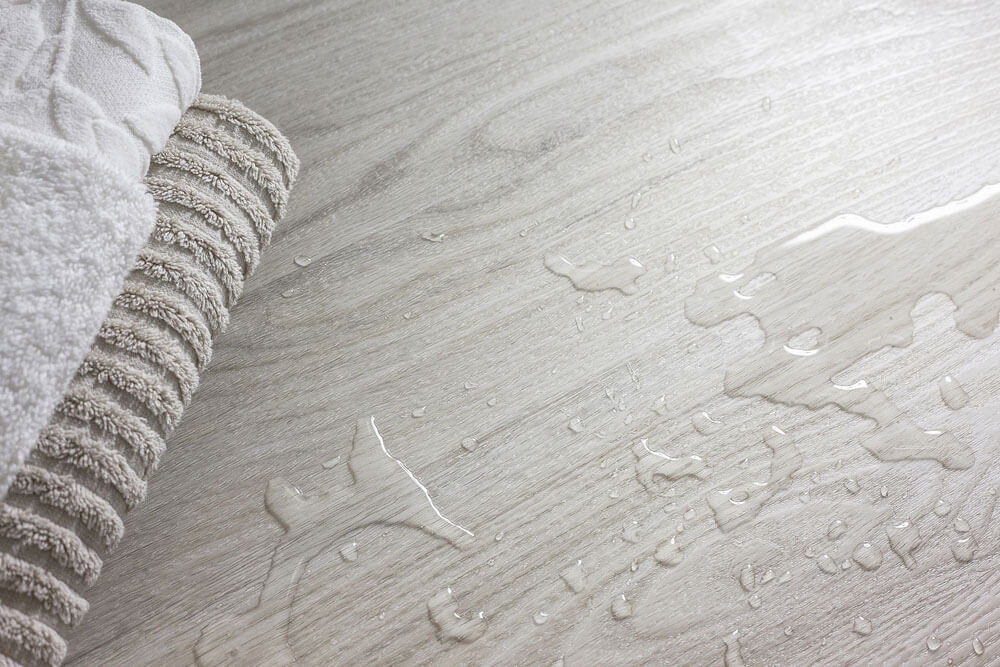It doesn’t matter what kind of flooring you have installed in your home or office. If left to fight the rigors of yet another Tennessee summer alone, your flooring isn’t going to last. The reason for this isn’t direct exposure to sunlight, but rather the effect the sun will have on the humidity. Nashville, in particular, is already pretty humid, which is why you need to take even more caution and plan ahead during the summertime.
How Tennessee Humidity Affects Your Floors
What Humidity will do to Hardwood Flooring
Generally speaking, hardwood is one of the more durable flooring options available on the market, but it too will fold (almost literally) under the crushingly oppressive force that is humidity. If precautions aren’t taken, humidity will cause the wood to warp. If it’s too hot and wet, then the floorboards will swell with excess moisture. If left unchecked, the floorboards will begin to cup, which is when the sides rise up and the center of the board sinks. The opposite is also true; if the humidity is too low, the wood will dry out, leading to cracking and splitting. A single floorboard might not be the end of the world, but it can get expensive and kind of annoying to replace repeatedly. The best thing to do is make sure the humidity level inside your home or office is between 35 and 55%.
How Residential Carpeting Handles Humidity
Humidity is a problem for hardwood flooring, but it is a nightmare for residential carpeting. If there is too much humidity in the air, mold will start to develop. This is true for other types of flooring as well, such as laminate flooring. Though it is durable it isn’t completely immune to the dangers of molding, however, mold is a much larger concern with residential carpeting. The reason it is a problem is because the longer fibers will grab a hold of the toxins, mold and other irritants, trapping them for much longer than you would expect from other kinds of flooring materials. Generally, you can get around this problem by vacuuming regularly, but that’s not going to help with the humidity. The best thing you can do for residential carpeting is to keep an eye on the humidity levels in your home. The window for residential carpeting is smaller than it is for hardwood floors, but still around 50%, so if you’re lucky enough to have both types in your home or office, you will be fine.
Humidity and Laminate Flooring
The best thing about laminate flooring is that it handles rough conditions better than either hardwood flooring or residential carpeting. This might explain why you find laminate flooring in so many homes and offices around Nashville. Laminate flooring is fine in the 30-60% humidity levels, so it can exist along hardwood flooring and residential carpeting without any concerns. Since laminate flooring mimics hardwood flooring in so many areas, you might not be surprised to find out it also reacts the same ways when exposed to humidity levels outside the safe-zone. It’s a bit more pronounced with laminate flooring, due to the tongue and groove locking system used to install the flooring. Instead of one individual floorboard warping and cracking, the first one will cause the next one to warp, and so on.
Tennessee summers can be brutal, but if you monitor the humidity levels in your home and keep it around 50%, you don’t have to worry about the long hot season affecting the floors as much. If it’s already too late, then be sure to call the professionals here, at Ozburn-Hessey to pick out the replacements and maintain beautiful floors for a lifetime.




